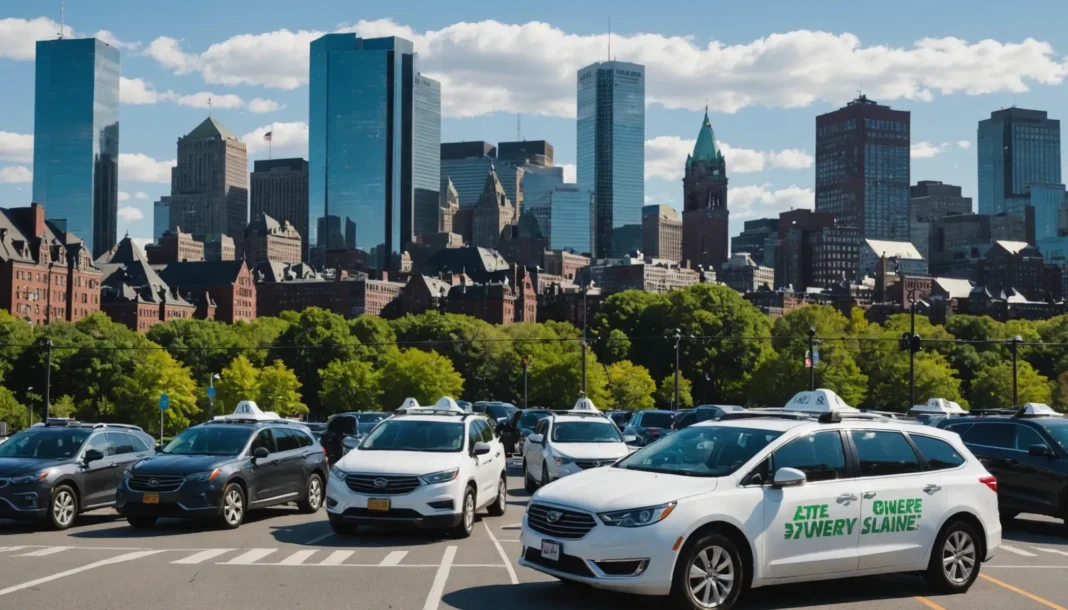In a troubling case that has captivated public attention, a Boston judge faces the challenging task of assessing the potential danger posed by an Uber driver accused of raping a passenger in his vehicle. Hermann Ngoufack Jiokeng, the defendant, remains held without bail, and the circumstances surrounding the trial have been anything but straightforward, with reports of him hiding behind a door during proceedings. This alarming incident not only raises serious questions about the safety of rideshare services but also ignites a broader debate on the urgent need for stricter regulatory measures to protect passengers. As discussions unfold, the call for enhanced vetting and monitoring of drivers grows louder, underscoring the importance of ensuring the security of those who rely on rideshare options.
Understanding Rideshare Safety
Rideshare services like Uber and Lyft have become popular for their convenience. However, safety is a major concern for many passengers. When people get into a car with a driver they don’t know, they trust that the company has done background checks. Unfortunately, incidents like the one involving Hermann Ngoufack Jiokeng remind us that not all checks are foolproof. This raises questions about how safe these services truly are.
To improve rideshare safety, companies need to take extra steps in vetting drivers. This means not just checking driving records but also looking into criminal backgrounds. Ensuring that drivers pass strict safety checks can help passengers feel more secure. Public discussions on this topic are important because they can lead to better regulations that protect everyone who uses rideshare services.
The Role of Public Officials in Rideshare Safety
Public officials play a vital role in ensuring rideshare services are safe for everyone. When incidents occur, like the one in Boston, it often leads to calls for change. Advocates may push for laws that require rideshare companies to implement stricter safety measures. For instance, they might suggest that all drivers be fingerprinted and registered before they can work for these companies.
By taking action, public officials can help create a safer environment for passengers. They can work with rideshare companies to establish clear guidelines and regulations. This collaboration can lead to better protection for everyone who uses these services, helping to prevent accidents and crimes in the future.
What Happened in the Boston Case?
In Boston, a significant case involving an Uber driver has captured public attention. Hermann Ngoufack Jiokeng is accused of a serious crime against a passenger who was too drunk to defend herself. His actions during the court proceedings, such as hiding behind a door, have raised eyebrows and complicated the case. Many people are watching closely to see how the court will handle this situation.
The outcome of this case could have far-reaching effects on rideshare policies. If the court finds Jiokeng guilty, it might lead to stricter rules for all Uber drivers. This case highlights the importance of accountability in rideshare services and the need for clear safety measures to protect passengers.
Proposed Regulations for Rideshare Companies
As discussions about rideshare safety continue, many are proposing new regulations. Some officials believe that requiring fingerprinting for drivers is a necessary step. This process can help companies better identify who is behind the wheel and ensure they have clean backgrounds. Regulations like this aim to build trust between passengers and rideshare services.
Additional regulations might include more frequent checks on drivers and better training programs. These measures could help ensure that drivers understand the importance of passenger safety. By taking these steps, rideshare companies can help prevent incidents and make people feel more secure when using their services.
The Impact of Rideshare Incidents on Public Perception
Incidents like the one involving the Boston Uber driver can change how the public views rideshare services. When someone hears about a crime, it can make them hesitant to use these services in the future. Safety is a top priority for passengers, and any negative news can lead to a loss of trust in these companies.
To regain public confidence, rideshare services need to communicate their safety measures effectively. They should promote their background checks and training processes to reassure passengers. By taking visible steps to improve safety, rideshare companies can help rebuild trust and encourage more people to use their services without fear.
Conclusion: The Future of Rideshare Safety
As the debate over rideshare safety continues, it’s clear that changes are needed to protect passengers. The case of Hermann Ngoufack Jiokeng has sparked important conversations about how rideshare companies operate. It highlights the need for better regulations and safety protocols to prevent future incidents.
Looking ahead, it’s crucial for companies, public officials, and passengers to work together. By focusing on safety and transparency, rideshare services can enhance their reputation. The goal is to ensure that everyone feels safe and secure when using these convenient transportation options.


